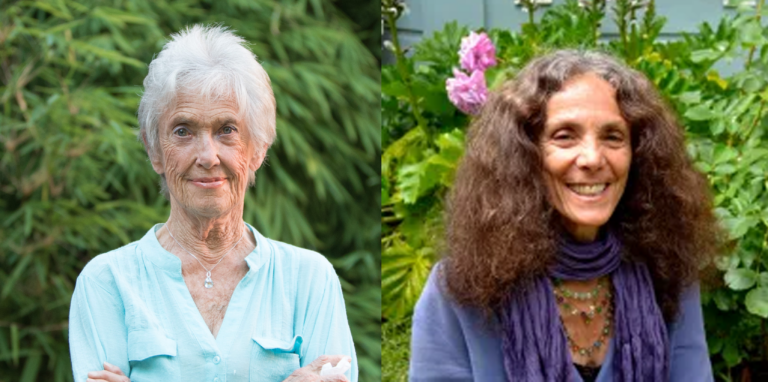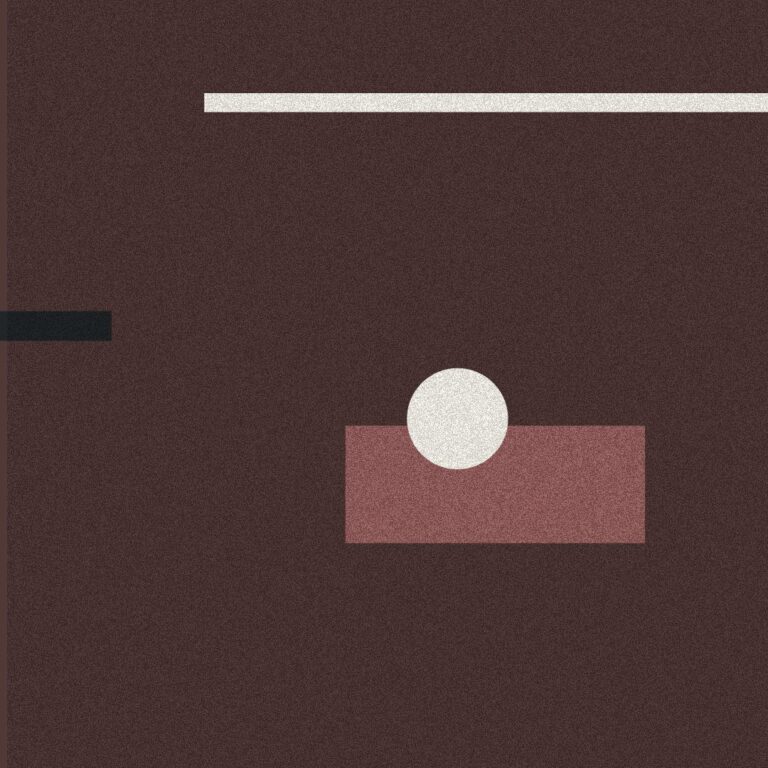“What a World You’ve Got Inside You”
Joanna Macy and Anita Barrows with Krista Tippett
An excerpt from the in-depth On Being conversation between Joanna, Anita, and Krista.
Joanna Macy is a philosopher of ecology and Buddhist teacher, and the root teacher of The Work That Reconnects. She’s the author of many books. Our previous On Being episode with her is “A Wild Love for the World.” That’s also the title of a lovely book of homage to her published in 2020.
Anita Barrows has translated three books of Rilke’s writing with Joanna, in addition to Letters to a Young Poet; Rilke’s Book of Hours; Love Poems to God; In Praise of Mortality; and A Year with Rilke. Anita is a psychologist and poet. She was a voice in the On Being episode, “The Soul in Depression.” Her most recent poetry collection is Testimony.
Find the full show “Joanna Macy and Anita Barrows — ‘What a world you’ve got inside you.’” at onbeing.org.

Transcript
Krista Tippett: Well, I wish I were sitting in a room with the two of you. [laughs] But here we are.
Joanna Macy: Can I see you?
Tippett: No, you can’t see me. You’re just going to hear me. I’m like the voice of God coming straight into your thoughts … [laughter] … and you into mine.
Anita Barrows: I’m not even going to look at my screen. I’m going to look at the redwood tree in front of my house.
Macy: That’s a good idea.
Tippett: This is a little hard to get used to, but I mean, I sometimes close my eyes, so I can completely listen. And it’s such a joy to be with the two of you. And I can’t really tell you how excited I was when I heard that you were translating Letters to a Young Poet, which — I feel like this book has — it’s been part of my life for such a long time, since — I think, Joanna, one thing you and I have in common is those — the early years we spent in Berlin, or in Germany. And we were both there in chapters of its 20th-century tumult, which was kind of a fault line of the world’s 20th-century tumult.
And I have my book with me. I think the two of you have your books with you. And I really just want us to kind of talk about this book and read to each other. And you know, I was just amazed, recently — I’m not sure I knew this or had ever taken it in — to read — well, it’s in your book, too, but I had read it recently somewhere else, that Rilke himself was only 27 when he replied to these letters. [laughs]
Barrows: That’s right. And I did not take that in at all, when I read it. I assumed he was an elderly man. [laughs]
Tippett: Yes, yes.
Macy: Well, he never got to be elderly.
Barrows: Right. Right.
Tippett: No. No.
There seems to me something that I have identified with in the last period that wasn’t there for me when Rilke entered my life, which was in the last couple of decades of the last century, is that he was a turn-of-century person, just as we have become turn-of-century people. It feels like there’s something in the heft of what he said and how he said it that he, also, in 1903 when he was writing those letters, was on the cusp of this unimaginable tumult and carnage and transformation of that last century.
Macy: Yes. You know, in the Book of Hours, which we’re not talking about, but he then, just a couple of years younger than when he is writing to the military cadet in his letters to this young poet, he said, “The leaf is turning like a century is entering,” just at that moment, at the becoming of the 20th century. And you could feel his — what would you say? — his awe and a troubled sense: what is in store? And the fates that are turning this page to the 20th century look at each other and say nothing. And he senses — he could’ve known nothing about the two world wars, the death camps, the nuclear bombs, the — [laughs] none of that. And yet, he sensed that to his core.
Barrows: Yes, very much, and he was very aware of the dangers of industrialization, which were already beginning to have their effect, certainly on Europe. And I think that was a piece of it — that there was an ominous sense of what was happening to the natural world which he loved.
Tippett: And all of that, everything that you two have just mentioned, is with us still and again, right?
Barrows: Yes. Yes, exactly. Exactly.
Tippett: That’s what I kind of — I feel, emanating from these pages, from these words.
It does seem to me — I have to say, in the last week, just in the last week, I have had his language of living — his language of living the questions has become absolutely central to my work and to my life. And just in the last week, for example, I’ve had it quoted at me by a neuroscientist and by a television actor. [laughs] And it does feel to me like if there is — and so let’s just maybe start with living the questions. Let me just read that passage, very particularly that experience of standing before great personal and civilizational questions, which right now have no answers. [laughs]
So he said — and which letter was this? This was Letter 4.
Barrows: It’s the fourth, yeah.
Tippett: “I ask you, dear sir, to have patience with all that is unresolved in your heart and to try to love the questions themselves, like closed rooms, like books written in a foreign language. Don’t try to find the answers now. They cannot be given anyway, because you would not be able to live them. For everything is to be lived. Live the questions now. Perhaps you then may gradually, without noticing, one day in the future live into the answers.”
Macy: What a wonderful way to relate to uncertainty.
Barrows: Yes, yes. And I think, you know, so much, especially in our very consumer-oriented society, where we’re looking for answers all the time, we’re looking for solutions — rapid solutions and neat solutions — [laughs] here we are, being told to live into the questions, to be able then to say, “I don’t know. I have to sit with this. I have to be with it.” It’s a practice that we’re not taught by anything in our society.
Macy: But it’s the only way to be in the present moment, because when we want to know, “Oh, where’s this heading? Are we heading to war? Are we heading to — can I have it now? Shall I be — can’t I have hope?” All of those things, even the question of hope takes you out of the present moment. And the present moment is the only place you’re really present, the only place where you can actually choose.
Tippett: You know, I have actually really taken this teaching as a life practice of holding the questions, loving the questions, and of — I’ve taken it as a life practice, with a question — to actually very actively do that: put the question before me, hold it, treasure it, nurture it, walk with it. And I have found that if you are faithful to a question like this, it will be faithful back, right? It will do this thing that he says, which is that you live your way into whatever the form an answer takes.
Macy: Yes! Then it comes toward you. Then it has more to say to you. Then you can hear it. And it — then you have a capacity. You are with the question in a way that invites you to become something that you haven’t been, yet. It extends a hand. So this is what I have been feeling even more in this last year or so, with all the work with Rilke’s feeling in him — this sense of opening to the reciprocity of life. It’s a living world. We can listen to it. We can open to it. It’s not a machine that we poke and press and push a button. It’s a mystery. And we meet the mystery, and then it talks.
